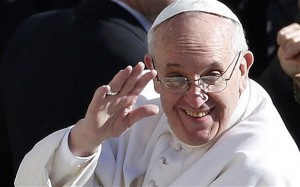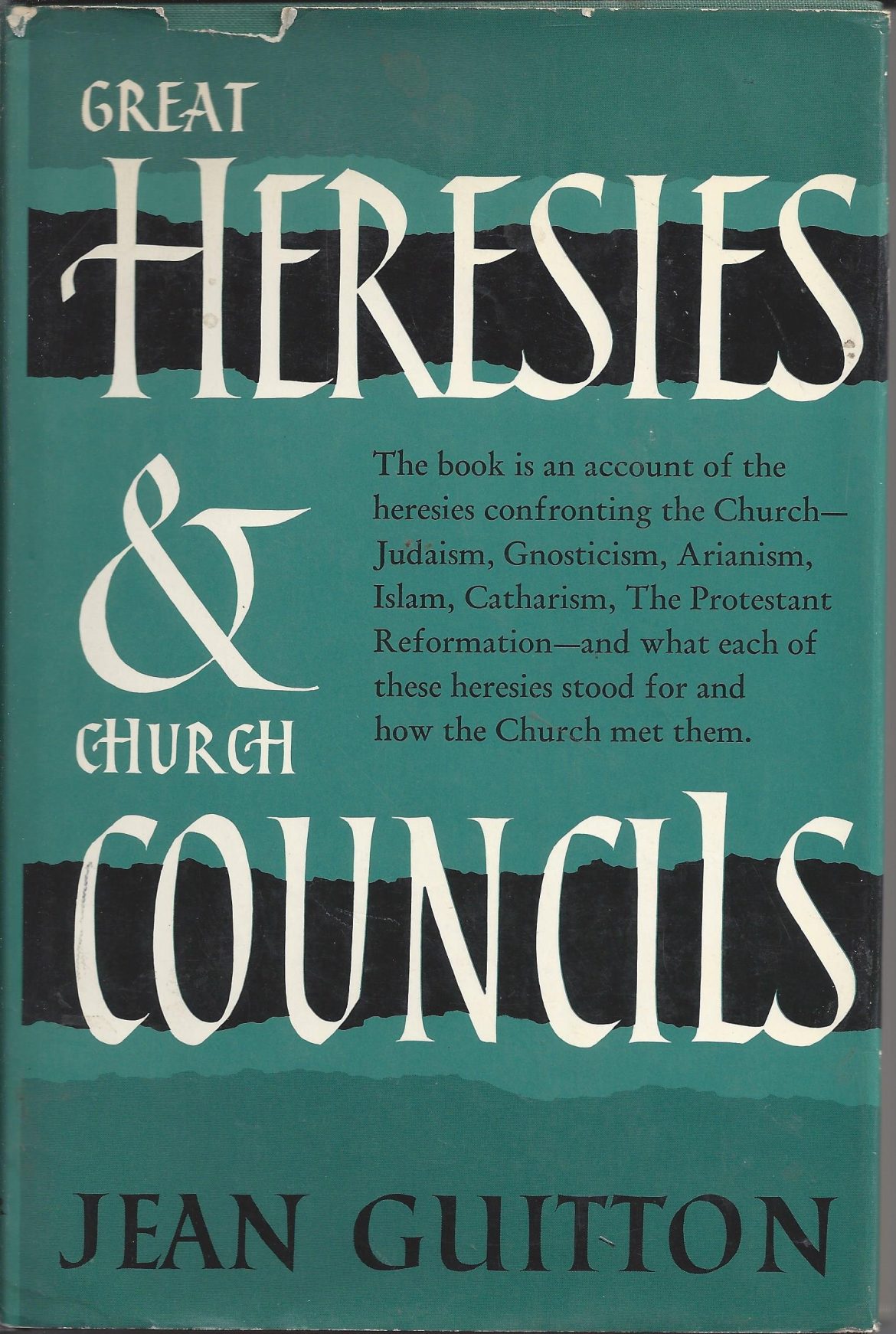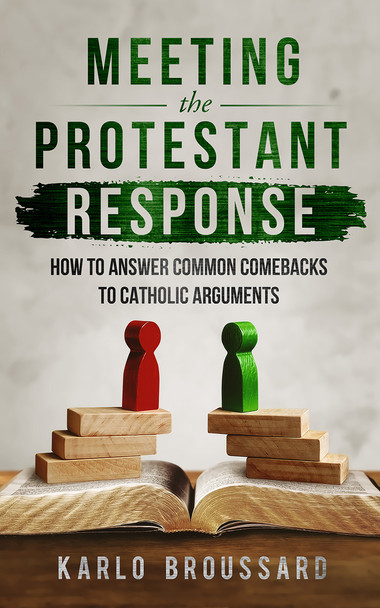Christ Came to Fulfill the Law
17 “Do not think that I have come to abolish the Law or the Prophets; I have not come to abolish them but to fulfill them. 18 For truly, I say to you, until heaven and earth pass away, not an iota, not a dot, will pass from the Law until all is accomplished. 19 Therefore whoever relaxes one of the least of these commandments and teaches others to do the same will be called least in the kingdom of heaven, but whoever does them and teaches them will be called great in the kingdom of heaven. 20 For I tell you, unless your righteousness exceeds that of the scribes and Pharisees, you will never enter the kingdom of heaven.
Anger
21 “You have heard that it was said to those of old, ‘You shall not murder; and whoever murders will be liable to judgment.’ 22 But I say to you that everyone who is angry with his brother will be liable to judgment; whoever insults his brother will be liable to the council; and whoever says, ‘You fool!’ will be liable to the hell of fire. 23 So if you are offering your gift at the altar and there remember that your brother has something against you, 24 leave your gift there before the altar and go. First be reconciled to your brother, and then come and offer your gift. 25 Come to terms quickly with your accuser while you are going with him to court, lest your accuser hand you over to the judge, and the judge to the guard, and you be put in prison. 26 Truly, I say to you, you will never get out until you have paid the last penny.
Lust
27 “You have heard that it was said, ‘You shall not commit adultery.’ 28 But I say to you that everyone who looks at a woman with lustful intent has already committed adultery with her in his heart. 29 If your right eye causes you to sin, tear it out and throw it away. For it is better that you lose one of your members than that your whole body be thrown into hell. 30 And if your right hand causes you to sin, cut it off and throw it away. For it is better that you lose one of your members than that your whole body go into hell.
Divorce
31 “It was also said, ‘Whoever divorces his wife, let him give her a certificate of divorce.’ 32 But I say to you that everyone who divorces his wife, except on the ground of sexual immorality, makes her commit adultery, and whoever marries a divorced woman commits adultery.
Oaths
33 “Again you have heard that it was said to those of old, ‘You shall not swear falsely, but shall perform to the Lord what you have sworn.’ 34 But I say to you, Do not take an oath at all, either by heaven, for it is the throne of God, 35 or by the earth, for it is his footstool, or by Jerusalem, for it is the city of the great King. 36 And do not take an oath by your head, for you cannot make one hair white or black. 37 Let what you say be simply ‘Yes’ or ‘No’; anything more than this comes from evil.
Matthew 5:17–37 ESV – Christ Came to Fulfill the Law – “Do – Bible Gateway
This Sunday, as we the last two weeks, we continue on with the Sermon of the Mount as Jesus hints further that his authority is more than the prophets of old along with explaining the depth of the moral law.
Dr. John Bergsma notes that:
This Gospel passage explodes the narrative that Jesus came to dumb down the moral law in order to make it easier to get to heaven. Jesus dumbs down the law not in the least. In the four antitheses (contradictions) that we have in this Gospel reading (“You have heard that it was said … but I say to you …”), Jesus does not loosen the moral requirements of Moses but tightens them. Moses did not go far enough, Jesus is saying. The Mosaic law governed external actions, but unless you undergo interior transformation as well, you cannot enter the kingdom of heaven.[1]
Jesus introduces the fulfilment of the law and the prophets, and you could say doubles-down on it. He does not explain away what came before, but points to the reality of the teaching that was always there. Yet, throughout history, we have those who would lighten his teaching to make it “easier” to “live out.” This tendency undercuts the grace that is given us to live out Jesus’ teaching. They diminish Jesus while boosting their own understanding. This lessening of our burdens actually increases them. This is one reason Jesus has such strong words for those who would teach others to relax their living out of the moral law. His praise is for those who hear his word, accept it, and live it out. James would echo this when he wrote, “But be doers of the word, and not hearers only, deceiving yourselves.[2]”
Dr. Brant Pitre explores what fulfills means:
The Greek word there for fulfill, plēroō, literally means to make complete, to bring to perfection. So what Jesus is revealing here is he is showing us that there are aspects of the Old Testament that are not perfect. In other words, they are not what God ultimately wants for his people.[3]
Jesus’ words regarding the Scribes and Pharisees imply that the heart of the moral law is not simply the text of the law, the explanation of the law, or the enforcement of the law regarding others. This entire section of The Sermon on the Mount shows how it is in the depths of our heart when united and lived out that we become more fully ourselves.
The Catholic Commentary on Sacred Scripture introduces the next session;
Jesus offers six vivid illustrations of the surpassing righteousness to which he calls his disciples. He sets up these examples with the phrase You have heard that it was said or It was also said, introducing either a quote from or an allusion to the law, sometimes with a mention of how the law was understood and applied. This is followed by the words “But I say to you,” which mark a solemn pronouncement by Jesus bringing forth the deeper meaning of the law and how it is to be lived out in the kingdom. In Greek, the “I” in these statements is emphatic. Jesus presents his teaching with the same authority as that by which God gave the law to Moses. This must certainly have aroused the attention of his listeners.[4]
When we look at the “Six Antitheses,” we might think that Jesus is bringing a new or deeper teaching. Showing how all our exterior acts start in the interior of our heart. That all sin starts in the will and what we will entertain and accept in our minds. Still, this idea was always an aspect of the Old Testament teachings from the beginning. In the Ten Commandments, we see condemned more than just outward actions as Dr. Brant Pitre points out:
The last two commandments are “you shall not covet your neighbor’s wife” and “you shall not covet your neighbor’s property.” So already in the Old Testament, God is trying to get his people to see that sin begins in the heart with the will.[5]
Or as Dr. Peter Kreeft puts it:
He explains “You shall not commit adultery” to mean not merely that we may not be unfaithful with our bodies but that we may not be unfaithful even with our souls.[6]
A fire is the easiest to extinguish if you first notice the embers growing and consuming an object. When that fire is robbed of the oxygen or material it needs to grow, it dies and can do no damage. This is the same with the moral life. We must be attentive to those potential fires in our will that end up consuming us. If a thought occurs to us, that is off-putting and against the moral law, we can snuff it out immediately and provide it no room to grow in our souls. If we entertain it and justify why this would be an acceptable response, we have allowed it to grow. Feeding it with resentment, anger, and a range of emotional excuses, the fire goes from easily contained to requiring much more effort to put out. We can move to denying the fire and feeding it more fuel until there is a conflagration that moves are will to action in carrying out this evil. We have moved from we must not do this to we must do this.
This ties back to those who teach relaxation of a commandment. Or indeed ourselves when we think that the moral law might be a fine ideal, but one we cannot live out. Later in the Gospel of Matthew, after Jesus teaches regarding impermissibility of divorce, “The disciples said to him, ‘If such is the case of a man with his wife, it is better not to marry.[7]’” This is a similar reaction we all have too difficult circumstances. There is an honesty in it if we realize it might be beyond our capability. We need help and that grace that only God can give us in carrying out his will. We don’t have to just white-knuckle it through life in that we have an advocate to help us and to form us.
This growth in holiness is a lifelong process of forming our interior dispositions to the will of Christ. It is properly a battle that requires eternal vigilance if we are to enter eternal life. Making John the Baptist’s “He must increase, but I must decrease,[8]” our own. Easier said than done, but we are not on our own.
One final aspect regarding oaths from the Catechism:[9]
2153 In the Sermon on the Mount, Jesus explained the second commandment: “You have heard that it was said to the men of old, ‘You shall not swear falsely, but shall perform to the Lord what you have sworn.’ But I say to you, Do not swear at all.… Let what you say be simply ‘Yes’ or ‘No’; anything more than this comes from the evil one.” Jesus teaches that every oath involves a reference to God and that God’s presence and his truth must be honored in all speech. Discretion in calling upon God is allied with a respectful awareness of his presence, which all our assertions either witness to or mock.
2154 Following St. Paul, the tradition of the Church has understood Jesus’ words as not excluding oaths made for grave and right reasons (for example, in court). “An oath, that is the invocation of the divine name as a witness to truth, cannot be taken unless in truth, in judgment, and in justice.
Sources
- The Word of the Lord: Reflections on the Sunday Mass Readings for Year A–John Bergsma
- Catholic Productions, Commentaries by Brant Pitre
- The Gospel of Matthew (Catholic Commentary on Sacred Scripture)
- Peter Kreeft, Food for the Soul: Reflections on the Mass Readings Cycle A
- English Standard Version Catholic Edition
- Catechism of the Catholic Church, 2nd Edition
- Photo by Ben White on Unsplash
- The Word of the Lord: Reflections on the Sunday Mass Readings for Year A, John Bergsma, 6TH SUNDAY IN ORDINARY TIME ↩
- English Standard Version Catholic Edition (2019). Augustine Institute. (James 1:22) ↩
- Catholic Productions, Brant Pitre, 6th Sunday in Ordinary Time (Year A) ↩
- The Gospel of Matthew, Catholic Commentary on Sacred Scripture, Edward Sri and Curtis Mitch ↩
- Catholic Productions, Brant Pitre, 6th Sunday in Ordinary Time (Year A) ↩
- Peter Kreeft, Food for the Soul: Reflections on the Mass Readings Cycle A, SIXTH SUNDAY IN ORDINARY TIME ↩
- English Standard Version Catholic Edition (2019). Augustine Institute. (Matthew 19:10) ↩
- English Standard Version Catholic Edition (2019). Augustine Institute. (John 3:30) ↩
- Catholic Church. (2000). Catechism of the Catholic Church (2nd Ed). United States Catholic Conference. ↩





